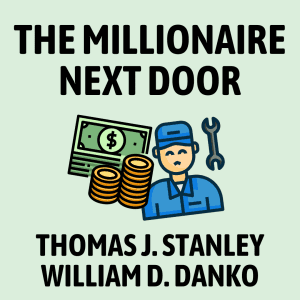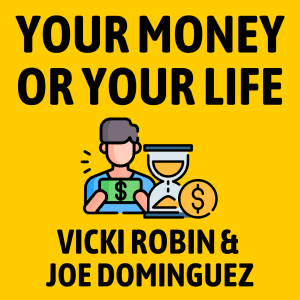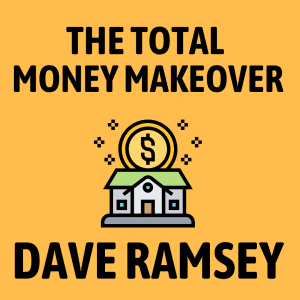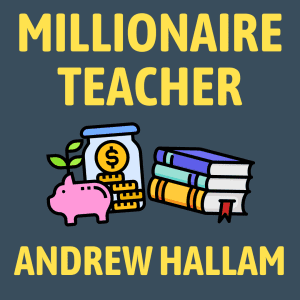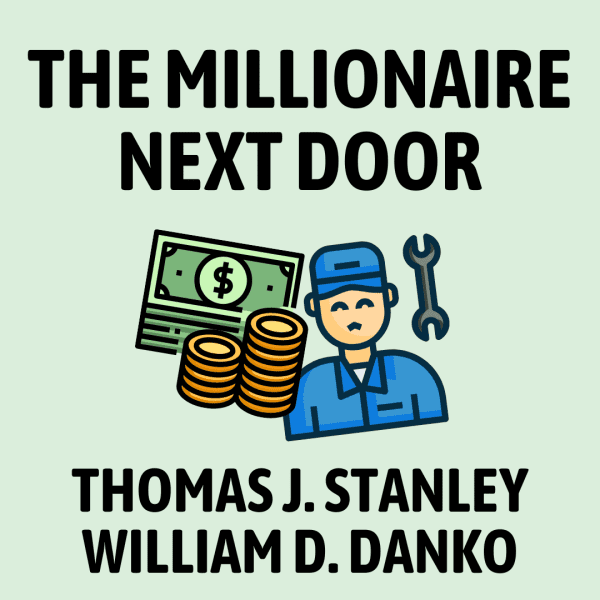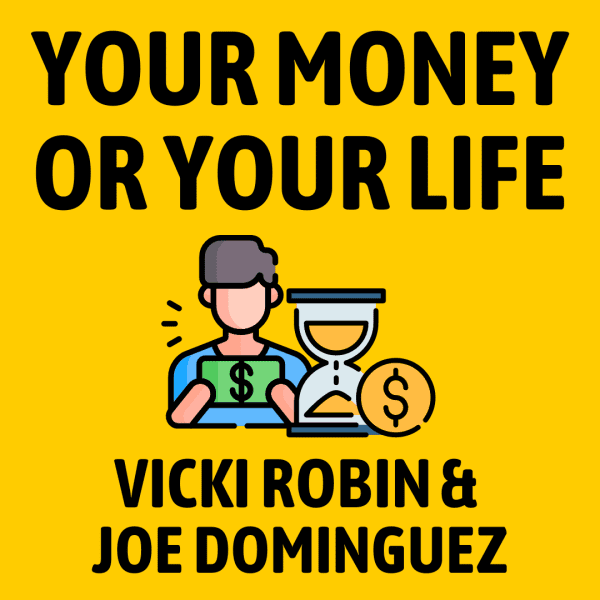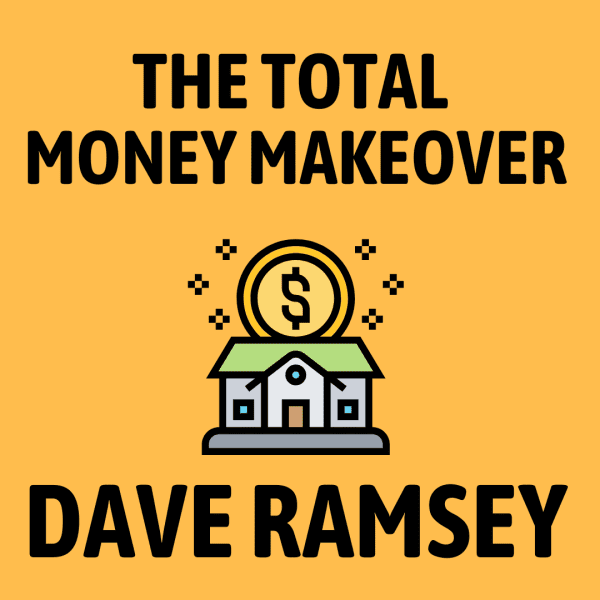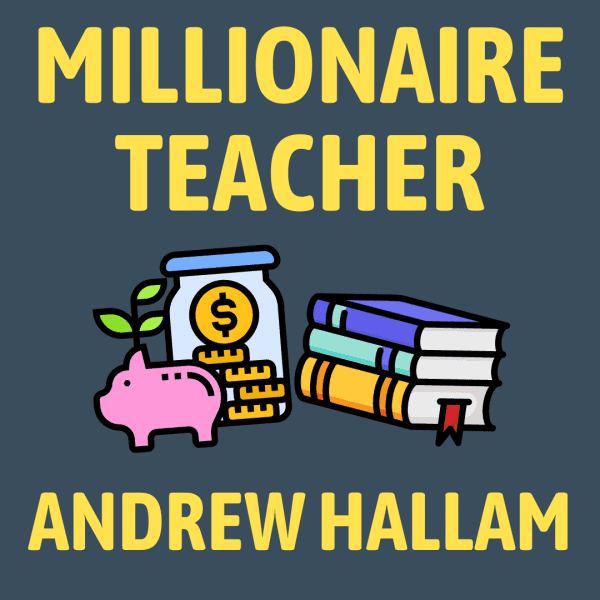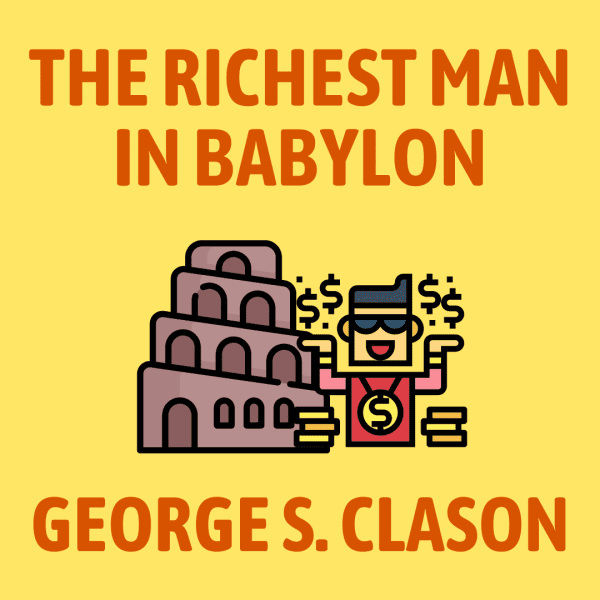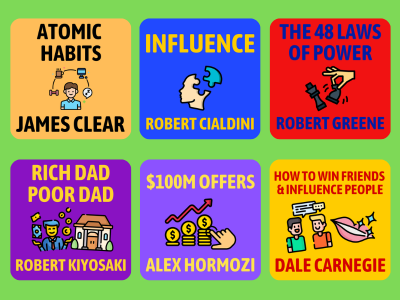"The Millionaire Next Door" by Thomas J. Stanley and William D. Danko reveals a surprising truth: most millionaires don’t flash their wealth—they quietly build it.
They live in ordinary neighbourhoods, make smart financial choices, and follow simple, consistent habits.
This book uncovers how they do it—and how you can too.
Why read it?
You should read The Millionaire Next Door if you're interested in understanding the real behaviors and habits that lead to accumulating wealth.
This book breaks down compelling research that demystifies the common perceptions of millionaires, revealing that true financial success often comes from living below one's means, investing wisely, and avoiding consumerism.
"Your Money or Your Life" by Vicki Robin and Joe Dominguez is about transforming your relationship with money to achieve financial independence and a meaningful life.
The book introduces a nine-step program that encourages readers to examine their money habits, reduce waste, and align their spending with their values and life goals.
It emphasizes mindfulness in finance, the importance of saving, and finding fulfillment beyond consumerism.
Why read it?
Reading "Your Money or Your Life" completely shifted my perspective on what it means to be wealthy and happy.
This book isn't just about saving money; it's about finding a deeper sense of purpose and fulfillment through mindful spending and living.
Vicki Robin and Joe Dominguez offer practical, thoughtful advice that challenged me to evaluate not just my finances, but how I spend my life energy.
It's empowering to see money as a tool for creating a life that truly reflects my values.
I recommend this book to anyone who feels caught in the cycle of earning and spending without feeling fulfilled.
These authors are like financial therapists, helping us let go of our old guilt around money, while crafting a plan to change our lives. 👩⚕️👨⚕️
"The Total Money Makeover" by Dave Ramsey is a step-by-step guide aimed at helping individuals overhaul their financial situation through debt elimination, savings, and investment.
Ramsey introduces his seven "Baby Steps" to achieve financial health, emphasizing aggressive debt repayment, building an emergency fund, and investing for the future.
Why read it?
After reading Dave Ramsey's book, I was inspired to take control of my finances like never before.
Ramsey's straightforward, no-excuses approach to managing money, coupled with his practical Baby Steps, can turn what may feel like overwhelming battle against debt into a clear, achievable path to financial freedom.
This book helped me to not only reconsider my spending habits but also to make real, impactful changes in my financial life.
If you're feeling stuck in a cycle of debt and financial stress, I highly recommend giving this book a read.
There’s nothing complicated about Dave Ramsey's advice, folks!
He just provides us with a common sense financial plan that works—if we’re willing to work the plan! 💪
Millionaire Teacher explains how to start investing as a middle-class person so you could retire a millionaire.
Andrew Hallam, who was a Canadian English teacher, explains how to save more money through extreme frugality and where to put our savings for the most dependable growth. (Hint: index funds.)
"The Richest Man in Babylon" by George S. Clason offers timeless financial wisdom through parables from ancient Babylon, focusing on principles such as saving 10% of your income, living within your means, and avoiding get-rich-quick schemes.
The book champions the concept of "paying yourself first" by setting aside at least 10% of your income before paying any expenses.
Why read it?
After reading "The Richest Man in Babylon," the principle of "paying yourself first" truly resonated with me.
This idea of automatically saving a portion of your income before anything else has shifted the way I manage my finances.
It’s a small change that can make a huge difference in your financial journey.
The stories, set in ancient times, brilliantly illustrate how such a simple habit can lead to lasting wealth and financial independence.
The book’s advice is straightforward but powerful, teaching not just to save, but to actively invest in our future selves.
It's inspiring to see how applicable these ancient principles are today, and I can't recommend this book enough to anyone looking to improve their financial health.
It's kind of like hearing life lessons from a wise and wealthy grandfather, but with more camels. 🐪

